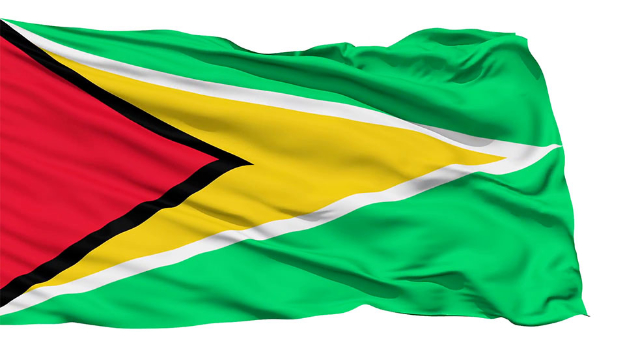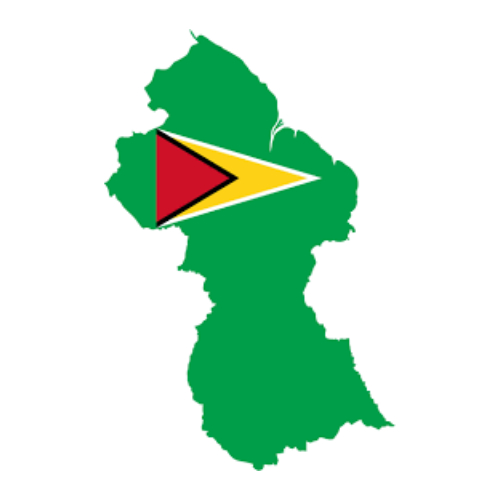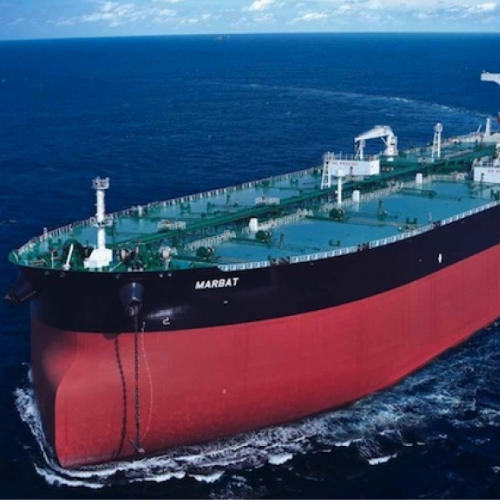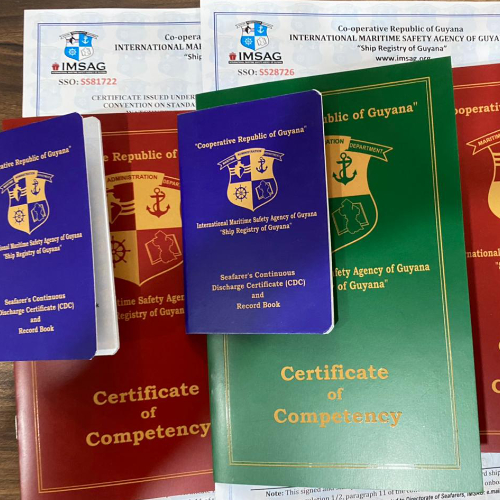International Maritime Safety Agency of Guyana Inc. is always committed to quality client service. During these rapidly changing and challenging times, the Guyana Ship Registry remains fully operational and accessible to our clients. In addition to the normal activities of protecting life, the environment, and resources, the COVID-19 virus means the IMSA Guyana must now, more than ever, focus on ensuring that IMSA Guyana registered ships continue trading to keep the global supply chain moving.
The International Maritime Safety Agency of Guyana encourages all government agencies and industry stakeholders to recognize this is a force majeure situation that will necessitate flexibility. This page will continue to be updated based on the rapidly changing COVID-19 situation.
IMSA Guyana Status
The Guyana Ship Registry-Operated Internationally by IMSA Guyana is committed to responsibly facilitating the business operations of our clients around the globe. Our worldwide offices are monitoring guidance from their local authorities and the World Health Organization (WHO). IMSAG network of worldwide experts including client services managers, and technical and marine safety personnel are available to provide service locally which is essential during these challenging times. While some of our offices remain open, many of our offices and team members are now working remotely and we maintain our full capability to assist clients throughout the world using normal email and phone channels without interruption.
The Guyana Registry’s International operations teams including Offshore Team, Technical, Marine Safety, Seafarers’ Documentation, Radio Station Licensing, Vessel Registration, and Vessel Documentation, remain fully manned and capable of answering questions from ship operators, shipowners, Classification Societies (Class) / Recognized Organizations (ROs), Registration Manager, banks, law firms and other industry stakeholders. To ensure a timely response please use the email address for the appropriate department.
As this challenging situation continues to escalate there have been many questions posed to the IMSAG Maritime Administrator (the “Administrator”). Please take a moment to review the following important information:
- Ship Audits & Survey
- Ship Inspection
- Seafarers 'Documentation
- Crew Agreement
- Update on International Maritime Organization (IMO)
- Implementation of IMO 2020 0.50% fuel oil sulphur content limit
- Exhaust Gas Cleaning System Installation
- Recordation of Mortgages & other Instruments
- Useful Links
Ship Audits & Survey
As statutory certificates become due for periodic or renewal surveys, ship operators are requested to make all efforts to ensure certificates are valid. However, it is recognized that there may be issues securing dry-docks and repair facilities, receiving essential equipment, and organizing servicing technicians. In some cases, it may be difficult to arrange attendance from Class / ROs. It is imperative that the ship operator and Class work together to keep certificates valid using physical and remote survey techniques where possible. The Administrator has authorized International Association of Classification Society members to act on its behalf to evaluate each situation and recommend a course of action to the Administrator.
In the most extreme cases, where neither a physical attendance nor a remote survey can be organized, then the RO may recommend a period of grace of up to three months. The RO should record and track the status of any extensions and provide ships with evidence that certificates have been extended along with an explanation. While the Administrator cannot guarantee that every port State control (PSC) will accept extended certificates, this evidence may be shown to PSC. It is recommended that such evidence is also sent with any advanced notice of arrival that may be required by some coastal States.
Ship Inspections
Alternative arrangements for vessel inspections are available to address and reduce risk. When the traditional in-person inspection is not possible, temporary arrangements will be considered. If you have an immediate question or concern regarding vessel inspections or boardings, please contact regional office or directly send an email to the inspection office for inspection at any part of the Gobe as noted below.
E.mail: Inspections@imsag.org
Close cooperation with the regional office coordinating your inspection is greatly appreciated as we work together to reduce the risk and minimize the global impact of COVID-19 in the maritime arena.
WHO provides updates on “affected areas” and the latest status updates.
Seafarers’ Documentation
Our Seafarers’ Documentation teams are operational with some personnel working from home. There are restrictions on office hours and/or visitors for some offices. Please email your Seafarers’ Documentation full-service processing office if you have questions about hours, closures, or visitors.
Registration Manager who submit applications online may continue to do so via remote desktop or virtual desktop infrastructure, if submitting from a remote location. If you do not have remote desktop capability and are unable to submit paper applications by courier, please contact seafarers@imsag.org for guidance.
Crew Agreement
The Administrator is aware that stringent border control measures to reduce the spread of COVID-19 has resulted in operators having difficulty in arranging crew changes and repatriating seafarers when their employment agreements expire. As a result, some seafarers employed to work on Guyana-flagged ships may exceed the service period as entered in their seafarer employment agreements (SEA).
The Administrator is closely monitoring the problems arising with the restriction of crew changes worldwide and will engage, if necessary, in an active dialogue with all relevant industry stakeholders to ensure the safety and security of the Registry’s seafarers and vessels.
If further guidance is required, please contact manager@imsag.org
International Maritime Organization (IMO) Update
With many meetings of the IMO now postponed, including the Legal Committee (LEG) 107, the Marine Environment Protection Committee (MEPC) 75 and the Maritime Safety Committee (MSC) 102, the Administrator has noted there will be consequential effects with regard to work program timelines and entry into force dates for treaty amendments. Noteworthy are the expected adoption of amendments to the International Convention for the Prevention of Pollution from Ships (MARPOL) Annex VI relative to testing/verification protocols and approval of the revised EGCS guidelines. In this regard, the IMO secretariat will develop a revised timetable once the final number of postponed meetings are known, taking into account modalities for these re-scheduled meetings (including submission of documents, effect on amendment procedures, etc.) to ensure the work of the IMO is adequately resumed. Until then, there is no opportunity for further official discussions on the response to COVID-19 on the maritime stage at an international level in relation to implementation and enforcement of relevant IMO instruments. However, the IMSAG Maritime Administrator is prepared to work with the international community as required to address implementation difficulties when encountered.
Visit the IMO’s press page which highlights the work of the IMO and circular letters issued to date.
A communication from the IMO Secretary General urging a practical and pragmatic approach, in response to issues like crew changeovers, resupply, repairs, survey and certification, and licensing of seafarers can also be found , which the Administrator fully endorses.
Implementation of IMO 2020 “0.50% fuel oil sulphur content limit”
High levels of compliance were noted with only a handful of cases reported where difficulties were encountered due to fuel oil non-availability. Ship operators are urged to remain vigilant regarding potential fuel oil quality and availability issues worldwide in the event of unforeseen supply disruptions arising from COVID-19 measures. The Administrator will continue to assess Fuel Oil Non-Availability Reports (FONAR) on a case-by-case basis and utilize discretion when evaluating what actions to take, including taking no control actions, where, despite all best efforts, the ship was unable to source compliant fuel oil.
Carriage of Non-Compliant Fuel Prohibition:
Results from an informal survey in advance of the entry into force of amendments to MARPOL Annex VI prohibiting carriage of non-compliant fuel oil on 1 March 2020 indicated a high level of readiness throughout the Guyana fleet, with roughly an 80% response rate. Broad enforcement of the carriage prohibition is expected by PSC. The Administrator has noted instances of PSC action against ships found with non-compliant fuel oil onboard. Under some circumstances, the Administrator may permit a ship to carry non-compliant fuel oil, with concurrent approval by the competent authorities for the port of destination and port of departure, as relevant, if party to MARPOL Annex VI. Such a situation may be to allow for a single, one-way, direct voyage to bunker compliant fuel oil for the ship, in accordance with Regulation 18.2.4, when compliant fuel oil is not available. IMO Circular MEPC.1/Circ.881, Guidance for port State control on contingency measures for addressing non-compliant fuel oil, is to be referenced when considering options to deal with remaining non-compliant fuel oil onboard.
Exhaust Gas Cleaning System Installation
COVID-19 restrictions are impacting some scrubber installations planned in China, which may also be difficult in other ports should restrictions become more widespread. In several instances, due to delays in drydocking/installation, ships have requested to retain non-compliant fuel onboard past the 1 March 2020 deadline for use during installation surveys. The Administrator will continue to evaluate such requests on a case-by-case basis, but generally will support requests to retain non-compliant fuel being onboard after 1 March 2020 subject to specific conditions, evidence of which must be submitted as follows:
1. signed agreement with the shipyard and EGCS supplier;
2. written confirmation from the shipyard and/or makers that issues caused by the COVID-19 pandemic are the reason for the enforced delay;
3. RO verifies the isolation and security of the non-compliant fuel and issues an occasional survey report to that effect. Validity not to exceed three months beyond 1 March 2020; and
4. records of soundings maintained in order to confirm no consumption of non-compliant fuel.
Mortgages Recordation:
All transactions that require the recordation of a mortgage or other instrument as well as all transactions requiring notarization or acknowledgment, where such notarization or acknowledgment cannot be done in person due to the COVID-19 pandemic and associated restrictions.
If further guidance is required, please contact: registrations@imsag.org
It is important to restate that the Guyana Registry encourages all government agencies and industry stakeholders to recognize this is a force majeure situation, which will necessitate flexibility. This page will continue to be updated based on the rapidly changing COVID-19 situation.
Useful Links
- Brazil Ordinance No. 47 (English translation on second page)
- The Brazilian Health Regulatory Agency, COVID-19 – Guidelines for Embarkation and Disembarkation of Crew
- Centers for Disease Control and Prevention
- Centre for Health Protection, Hong Kong Department of Health, Updated Summary Table of Medical Arrangement for Visiting Vessels
- COVID-19 Restrictions – Online Tracker from the International Group of P&I Clubs
- EU & EC: COVID-19 Articles Related to Transport
- European Commission: Guidelines Concerning the Exercise of the Free Movement of Workers During COVID-19 Outbreak
- European Commission: Guidelines on Protection of Health, Repatriation, and Travel Arrangements for Seafarers, Passengers, and Other Persons On Board Ships
- France Prefectoral Decree No. 037/2020, Regulating Shipping and Maritime Activities in the Internal and Territorial Waters of the French Mediterranean Sea to Address the Coronavirus 2019 (COVID-19) Epidemic
- HKSOA-HKLSA Press Release (23 July 2020), Crew Change Operations Essential for Hong Kong and the Global Community
- IATA and ICS: Governments Must Facilitate Ship Crew Changes
- ICS: Coronavirus (COVID-19) Guidance for Ship Operators for the Protection of the Health of Seafarers
- ICS China Liaison Office: Notice on Extension of Duration of Related Certificates of Chinese Flagged Ships and Chinese Seafarers Engaged in International Voyages
- ICS China Liaison Office: Notice on Further Strengthening the Personal Protection of Frontline Workers at the Port during the Outbreak of COVID-19
- ICS, IMHA, and INTERTANKO: Coronavirus (COVID-19) – Protocols to Mitigate the Risks of Cases On Board Ships
- ITF E-Circular No. 087
- IMHA Statement: Getting Healthy Seafarers to a Ship: Mitigating the Risk with Quarantine and Testing
- IMO’s press page
- IMO Circular Letter No. 4204, Novel Coronavirus (2019-nCoV)
- IMO Circular Letter No. 4204/Add.1, COVID-19 – Implementation and Enforcement of Relevant IMO Instruments
- IMO Circular Letter No. 4204/Add.2, Joint Statement IMO-WHO on the Response to the COVID-19 Outbreak
- IMO Circular Letter No. 4204/Add.3, Operational Considerations for Management COVID-19 Cases/Outbreak On Board Ships
- IMO Circular Letter No. 4204/Add.4, ICS Coronavirus (COVID-19) Guidance for Ship Operators for the Protection of the Health of Seafarers
- IMO Circular Letter No. 4204/Add.5, Coronavirus (COVID-19) – Guidance Relating to the Certification of Seafarers
- IMO Circular Letter No. 4204/Add.5/Rev.1, Coronavirus (COVID-19) – Guidance Relating to the Certification of Seafarers and Fishing Vessel Personnel
- IMO Circular Letter No. 4204/Add.6, Coronavirus (COVID-19) – Preliminary List of Recommendations for Governments and Relevant National Authorities on the Facilitation of Maritime Trade During the COVID-19 Pandemic
- IMO Circular Letter No. 4204/Add.7, Coronavirus (COVID-19) – Guidance Concerning Unforeseen Delays in the Delivery of Ships
- IMO Circular Letter No. 4204/Add.8, Coronavirus (COVID-19) – Video Meeting with Port State Control (PSC) Regimes
- IMO Circular Letter No. 4204/Add.9, Joint Statement IMO-WCO on the Integrity of the Global Supply Chain During the COVID-19 Pandemic
- IMO Circular Letter No. 4204/Add.10, Joint Statement IMO-WHO-ILO on Medical Certificates of Seafarers, Ship Sanitation Certificates, and Medical Care of Seafarers in the Context of the COVID-19 Pandemic
- IMO Circular Letter No. 4204/Add.13, Coronavirus (COVID-19) – Recommendations for Governments and Relevant National Authorities on Facilitating the Movement of Offshore Energy Sector Personnel during the COVID-19 Pandemic
- IMO Circular Letter No. 4204/Add.14/Rev.1, Coronavirus (COVID-19) – Recommended Framework of Protocols for Ensuring Safe Ship Crew Changes and Travel during the Coronavirus (COVID-19) Pandemic
- IMO Circular Letter No.4204/Add.15, Coronavirus (COVID-19) – Personal Protective Equipment
- IMO Circular Letter No.4204/Add.16, Coronavirus (COVID-19) – COVID-19 Related Guidelines for Ensuring a Safe Shipboard Interface between Ship and Shore-Based Personnel
- IMO Circular Letter No.4204/Add.18, Joint Statement IMO-ICAO-ILO on Designation of Seafarers, Marine Personnel, Fishing Vessel Personnel, Offshore Energy Sector Personnel, Aviation Personnel, Air Cargo Supply Chain Personnel and Service Provider Personnel at Airports and Ports as Key Workers, and on Facilitation of Crew Changes in Ports and Airports in the Context of the COVID-19 Pandemic
- IMO Circular Letter No. 4204/Add.19/Rev.2, Coronavirus (COVID-19) – Guidance for Flag States regarding Surveys and Renewals of Certificates during the COVID-19 Pandemic
- IMO Circular Letter No.4204/Add.22, Coronavirus (COVID-19) – Singapore Crew Change Guidebook
- IMO Circular Letter No.4204/Add.26, Coronavirus (COVID-19) – Guidance on the Gradual and Safe Resumption of Operations of Cruise Ships in the European Union in relation to the COVID-19 Pandemic
- IMO Circular Letter No.4204/Add.29, Coronavirus (COVID-19) – Communication from the Secretary-General regarding the Crew Change Crisis
- IMO Circular Letter No. 4221, Communication from the Government of the People’s Republic of China
- IMO Circular Letter No. 4224, Communication from the Secretary-General
- IMO Circular MEPC.1/Circ.881, Guidance for port State control on contingency measures for addressing non-compliant fuel oil
- International Road Transport Union: Impact on Freight and Passenger Transport of the Global Coronavirus (COVID-19) Outbreak
- Joint Circular No. 01, Guidelines for the Establishment of the Philippine Green Lane to Facilitate the Speedy and Safe Travel of Seafarers, Including their Safe and Swift Disembarkation, and Crew Change During the COVID-19 Pandemic
- Joint JNG-ITF Statement: Crew Changes and Contractual Rights & Obligations
- Kanoo Shipping (22 July 2020), Crew Change Formalities at Dubai Ports during COVID-19 Pandemic
- MARINA Advisory 2020-23, Further Extension of Validity of STCW Certificates of Filipino Seafarers Currently Serving Onboard Seagoing Ships Amid Challenges caused by COVID-19
- MEPC 75/3, Draft amendments to MARPOL Annex VI
- MG 1-04-1, COVID-19 Guidance on Modifications
- Paris Memorandum of Understanding Guidance Regarding the Impact of COVID-19
- Promare Newsletter – COVID-19: Updates in the North and Northeast ports and Crew Change proceedings in Brazil
- PROINDE Guidance, Coronavirus (COVID-19) in Brazil
- Ship Operations Cooperative Program: US Mariner Crew Change Facilitation Guidance for COVID-19
- WHO
- WHO COVID-19 Interim Guidance, Rational use of personal protective equipment for coronavirus disease (COVID-19) and considerations during severe shortages
- Wilhelmsen Guidance (22 July 2020), Brazil Crew Change Guidelines
Latest Update: 15 March 2021












